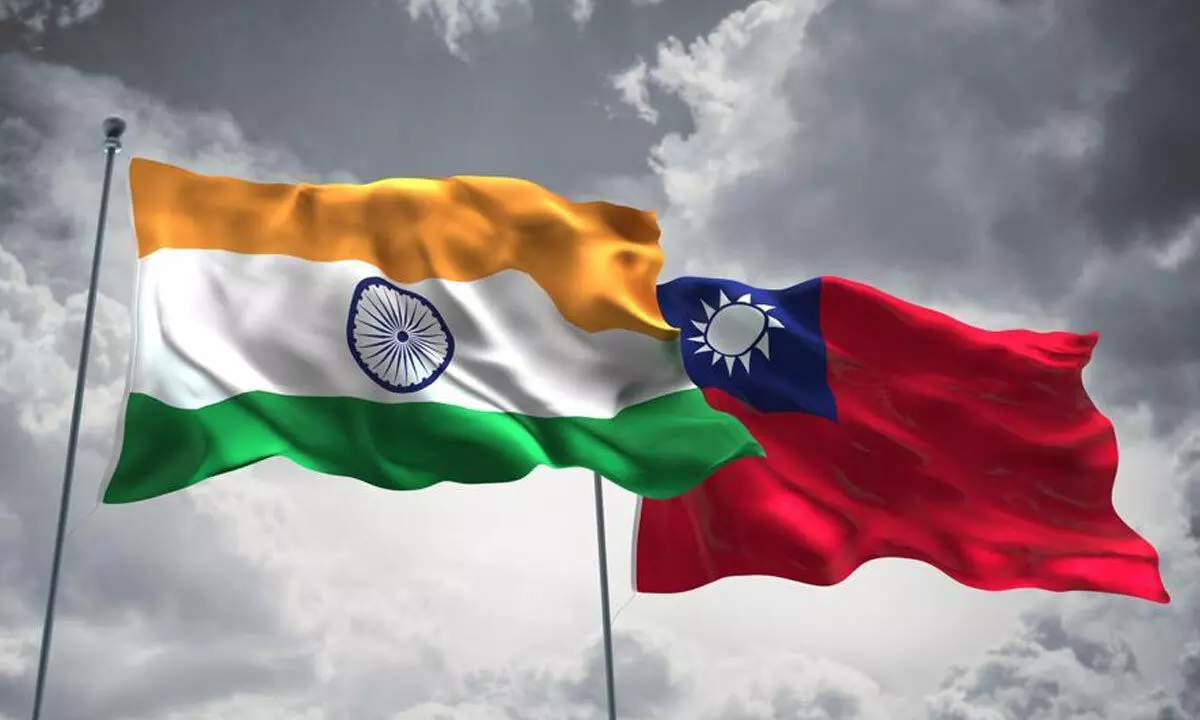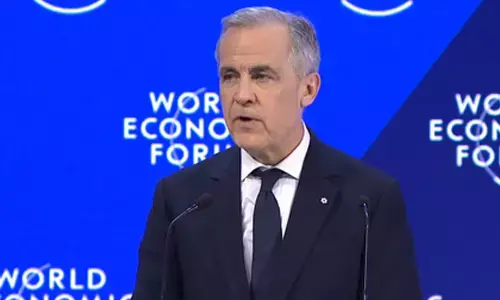A catch-22 situation for India?

A catch-22 situation for India?
The recent visits to Taiwan by the US House Speaker Nancy Pelosiand subsequently by a delegation of US Lawmakers have raised temperatures to a fever pitch, reigniting tensions between the US and China.
The recent visits to Taiwan by the US House Speaker Nancy Pelosi and subsequently by a delegation of US Lawmakers have raised temperatures to a fever pitch, reigniting tensions between the US and China. Foreseeing a Chinese invasion, Taiwan is conducting its largest ever military drills which simulate the repulsion of an invading force.
There are indications of a possible military intervention by the US if China unilaterally takes action to breach the status-quo. While the global economy is still paying a hefty price for the Russian actions in Ukraine and COVID-19 pandemic, the dangers of a Chinese invasion of Taiwan will have far-reaching geo-economic and geopolitical consequences for India and the world. But what is so special about this tiny island that the Chinese are willing to wage a war against the mighty US military? And what are India's economic interests and political options in the event of an invasion of Taiwan?
History between China and Taiwan
After a brief spell as a Dutch colony (1624-1661), Taiwan was annexed by the Qing dynasty of China in 1963. Following the first Sino-Japanese War in 1895, Taiwan was colonised again by the Japanese imperial rule. Finally, Japanese surrendered and gave up control over Taiwan in 1945 after their defeated in the World War II.
Consequently, the governance of Taiwan was transferred back to the Republic of China (ROC) by the United Nations Relief and Rehabilitation Administration. However, in 1949, the Chinese communist armies defeated Nationalist forces on the mainland and established the People's Republic of China (PRC). The Nationalist government and armies fled to Taiwan, again resulting in the separation of Taiwan from China. The PRC government in Beijing has maintained that it has jurisdiction over Taiwan and has continued to propound a one-China policy.
Disputed rights over South China Sea
The South China Sea (SCS) is bordered by several Southeast Asian nations, mainly, China, Taiwan, the Philippines, Malaysia, Brunei, Indonesia, Singapore and Vietnam. This sea holds tremendous strategic importance for its location since it is the connecting link, known as the Strait of Malacca, between the Indian and the Pacific Oceans.
According to the UNCTAD, SCS accounts for one-third of global maritime trade, carrying an estimated US $3.37 trillion worth of trade every year. The SCS is estimated to have 11 billion barrels of untapped oil and 190 trillion cubic feet of natural gas, as per Council on Foreign Relations.
As estimated by the Department of Environment and Natural Resources, Philippines, SCS has one-third of the world's marine biodiversity. Importantly, the country that will control this maritime route will have substantial military advantage over rest of the world. China's keenness to unilaterally control SCS is evident from the fact that it has been conducting military surveillance, constructing ports, military installations, airstrips, and even building artificial islands.
Global high stakes of semiconductors
Taiwan is the unmatched leader of the world's semiconductor industry, singularly holding 63% of the global foundry market share, followed by South Korea (17%), and China (6%). In fact, in the first quarter of 2022, Taiwan Semiconductor Manufacturing Company (TSMC) has emerged as the world's largest chip manufacturer while alone commanding a global market share of 54%. It supplies chips to major technology firms such as Apple, Intel, Nvidia and major car makers around the world including Volkswagen, Ford, Toyota motors, and so on.
Furthermore, replicating the manufacturing of semiconductors are extremely costly, tedious and time-consuming process. In 2021, the world witnessed a massive shortage of chips(primarily due to an ease in COVID-19 restrictions, sudden surge in demand, and disruptions in global supply chain) and realised its mammoth dependence on Taiwan.
India's stakes
India's economic vitality rests on assured supply of energy and secure trading routes in the SCS, including the Straits of Malacca. India uses the SCS waterways for trade worth nearly US $200 billion each year. Nearly 55% of India's trade with the Indo-Pacific region pass through these waters, making SCS a significant geo-economic water body for the country.
Further, the Taiwan Strait is the primary shipping route between Japan, China, Taiwan and (much of) South Korea, carrying goods from the East Asian factories to the global market. India has comprehensive economic partnership agreements with Japan and South Korea, and recently signed an economic cooperation and trade agreement with Australia. India is at a very nascent stage in facilities for designing and manufacturing chips. This is also impeding India's 'self-reliance' when it comes to electronics manufacturing. In December 2021, India and Taiwan started negotiations on free-trade agreement focusing on developing India into a semiconductor manufacturing hub. If China invades Taiwan, it will have an insane control over a plethora of resources, a strategic military advantage, and a dominance over the US $3.37 trillion trade route as compared to India.
How should India respond?
In more recent times, there has been a palpable change in India's stance over the sovereignty of SCS dispute, especially after Galwan Valley clash in 2020. India has maintained that SCS is a part of global commons and that there is a need to ensure freedom of navigation and unimpeded lawful commerce in this region. India should asseverate similar stance for Taiwan Strait and move back from the policy of a studied silence. If India seeks to engage with the prosperous Indo-Pacific region, it will be affected by the US-China friction over Taiwan. While many experts have argued that this is not India's battle to fight, India needs to wake up to the reality that Taiwan's security is critical to its own security and that of the Indo-Pacific region. In the face of this catch-22 situation, it's about time India strengthens economic ties and scales up diplomatic relations with Taiwan.
(Dash is an Assistant Professor at the Indian Institute of Technology Bhubaneswar and Mishra is an Assistant Professor at the Administrative Staff College of India, Hyderabad)















